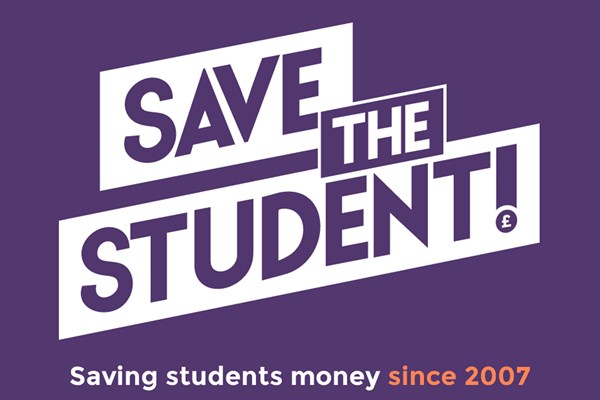








students Cost of Living
With the current cost of living crisis impacting so many of us, we are committed to ensuring our students are aware of all the help available. We want our students to be able to focus, stress-free, on their studies and enjoy their time with us. A few initiatives that are already available at our main campuses include microwaves and fridges for you to use, lockable charging stations and free period products.
Money & Housing Advice Team
Our Money & Housing Advice Team are available to contact about any issue related to finances or housing.
Support available
- Support with any problems you encounter with your student funding
- Provide information and advice on budgeting
- Advice on additional sources of income and funding
- Help to identify ways you can save money
- Advice on any entitlement you may have to welfare benefits and how student income affects benefits
- Advice on your rights and responsibilities as a tenant
- Provide help on dealing with issues with your landlord
You can contact the Money & Housing Advice Team by email at [email protected].
The team have also curated key resources as part of National Student Money Week 2024, which you can find here.
Podcast
Hear from Money and Housing Advisor Steve Eagle about budgeting for university, tips and tricks to save money and what financial support is available for students.

Average Student Living Costs
To help you get a rough idea of how much to budget for coming to study with us, we’ve calculated the average costs for living in London and outside London.
Living Expenses
| Expense | Average cost per week London | Average cost per week outside London |
|---|---|---|
| Rent / Accommodation | £200 - £300 | £150 - £250 |
| Bills (Gas, Electric, Water)* | £15 - £30 | £15 - £30 |
| Phone, Internet, TV Licence | £10 | £10 |
| Food, groceries, laundry | £50 | £30 - £40 |
| Travel to and from University | £10 - £40 | £10 - £40 |
| Study related expenses | £10 | £10 |
| Other (eg social) | £30 - £50 | £20 - £40 |
| Total per week | £325 - £490 | £245 - £420 |
| ANNUAL ESTIMATE (40 Weeks) | £13,000 - £19,600 | £9,800 - £16,800 |
*Bills may be included in your rent – check your housing contract
The costs presented are only estimates and have been calculated using a range of student surveys and the expenditure the Money & Housing Advice Team see in applications to the University’s hardship funds. These costs may vary depending on your lifestyle and should be used as a guide only.
If you are looking to get an idea of expenditures that are more bespoke to you and your lifestyle, please contact our Money & Housing Advice Team.
Scholarships, Bursaries and Hardship Funds
The University provides a wide range of scholarships, bursaries and hardship funds for both undergraduates and postgraduates to help with the cost of your degree. See our scholarships and bursaries page for more information.
Our hardship funds also provide support to students in financial difficulties. Each fund has different eligibility criteria, and full details, including how to apply, can be found on our student platform, Elite.
The Study Support Fund
The Study Support Fund is designed to help with unexpected financial difficulties you may experience during your course. The maximum payments for students in the 2024/25 academic year are currently:
- £2000 on a full-time course
- £1000 on a part-time course
The Digital Hardship Fund
The Digital Hardship Fund provides help towards buying essential IT equipment for your course (e.g. laptop, printer, noise-cancelling headphones) in the form of store credit with the John Smith Group. To be eligible for help from the Fund, you must have a household income of below £43,000 a year (2024/25) and demonstrate that you cannot afford to buy such equipment yourself.
The Graduation Support Fund
The Graduation Support Fund provides financial assistance to students who need help with the costs of attending graduation in Autumn 2024 or Spring 2025. You may be able to receive help with the costs of:
- Graduation gown hire
- Up to two guest tickets
- Up to £50 towards travel costs to your ceremony.
The DSA Equipment Top-Up Fund
The DSA Equipment Top-Up Fund reimburses the £200 contribution to students who are eligible for assistive technology through Disabled Students’ Allowances (DSA) and have to pay for such technology.
Employability Financial Support
The Employability Service offers two financial support funds:
- The Volunteer Bursary: a bursary of up to £300 to offset some of the financial burden of volunteering
- The Opportunities Fund: a bursary of up to £200 to cover the cost of employability or employment enhancing activities
To be eligible for the support you must be an undergraduate student who pays ‘home’ fees, with a household income of below £42,875 a year (2024/25).
International Students' Emergency Fund
This Fund provides short-term financial support to international students who experience a significant disruption to their funding whilst on their courses at the University, due to an unexpected crisis or emergency situation. This could include natural disaster, civil unrest, conflict or some other emergency situation that means you are no longer able to receive funding from your home country.

resourceBlackbullion
We offer all our students a membership to Blackbullion. They provide digital financial education that helps to develop money confidence, knowledge and skill. It also empowers better financial decision making and can enable you to become money-smart before you graduate.
Budgeting
Managing your money and budgeting effectively can be challenging. Here are some useful tips and resources to help get you in control of your finances.
Draw up a budget
The most helpful thing you can do to feel more in control of your money is to draw up a budget. A budget in its simplest terms is a list of your income and your expenditure. However, for a budget to work, it needs to be a realistic. Once you have an overview of your income and expenditure, you can look at ways of making sure you don’t have more money going out than coming in.
There’s great information out there to help you with this – a good place to start is the University Budget Tips and Planner by Money Helper. You might also want to check out the Money Saving Expert Student Budget Planner.
To get an idea of how much you'll roughly need to live on during your time at university, the Which? Student Budget Calculator is a great resource to help you work out your budget.
Decrease your expenditure
It’s really important to look at ways of decreasing your expenditure – particularly if your expenditure is bigger than your income.
Money Saving Expert is an independent website with lots of useful information about how to do this. There’s a whole section of the site for students, as well as other really useful pages such as:
- The stop spending budgeting tool
- The family money help page
- You may also want to subscribe to the Money Saving Expert ‘money tips’ email
Other ways to reduce your expenditure include:
- Cancelling any unnecessary subscriptions such as Amazon Prime or Spotify Premium
Student bank account
Student bank accounts operate in the same way as non-student accounts, but with some key differences. Banks may offer a range of incentives to open a student account with them, such as a free railcard or mobile phone insurance, and they usually offer an interest-free overdraft facility*. Banks have different offers and interest-free overdraft limits – Money Saving Expert compares all the main student bank accounts.
After you graduate, your student account will usually turn into a graduate account. Depending on the bank, your interest-free overdraft may continue for a few more years but the interest-free limit will usually decrease over that time, and then turn into a more generic current account.
*Remember that a bank is not obliged to offer you an interest-free overdraft. Whilst we do not encourage students into any more debt than absolutely necessary, an interest-free overdraft can prove extremely useful.

Increase Your Income
Here you’ll find some advice on helping you boost your income whilst studying and things to be aware of.
Employment
While this sounds obvious, the best way to increase your income is to work alongside your studies. To get a deeper understanding, we'd suggest checking out this Blackbullion article, which covers what you need to know about working part time and student finance.
If you are subject to immigration restrictions on your leave to enter and remain in the UK (for example, if you are in the UK on a Student Route Visa), always check what employment you are allowed to take, if any, and what hours you are allowed to work.
Our Employability Team can help in finding employment, and you are welcome to speak to a member of the careers team at your campus. Whether it is just a quick question, you need your CV reviewed, are nervous about an interview, or would like to know about reputable job searching websites, they are there to help.
If you do work remember to check you’re on the correct tax code, so you don’t overpay tax. Remember you can request a refund, reclaim or fill in a P50 (online or paper form). To find out more about student tax, visit the GOV.UK website.
Student funding
Make sure you’re getting the correct amount of student funding. It is not unknown for the Student Loans Company/SFE/SFW/SFNI/SAAS to pay you less student funding than you are entitled. The Money & Housing Advice Team can check that you’re getting all the funding you should, and they will advise you on what to do if, for example, your household income drops significantly during the academic year- if you are an undergraduate you may be able to get your student funding reassessed.
Check your welfare benefits entitlement
Most full-time students cannot claim means-tested benefits such as Universal Credit, although there are some exceptions to this, for example, students with dependants and certain students with disabilities and limited capability for work. However, part-time students do not face the same restrictions and may be able to claim Universal Credit and Council Tax Reduction (if you are liable for Council Tax). The Money & Housing Advice Team can let you know if you can claim benefits and check that you’re getting the right amounts. The Turn2Us benefits calculator is also a really helpful resource to give you an idea of what you may be able to claim.
External scholarships and bursaries
There are a range of charitable trusts and grant-making organisations that you may be able to apply for financial help, depending upon your circumstances. A good place to look for these is on the Turn2Us website.
Generally speaking, as mentioned above, you need to apply for scholarships and bursaries before you start your course, but it can still be worth checking. The Scholarship Hub is a good place to start.
Alternative ways to earn
There are alternative ways to earn some extra cash or get freebies, we've listed some below:
- Survey Sites: Swagbucks, Ipsos iSay, Y Live and One Poll.
- Product Testing: Clicks Research, Tescohomepanels and Boots Volunteer Panel
- Task based apps: Roamler and Shepper
- Selling old clothes online
Savings
Finding ways to boost your savings can feel daunting, so here are some things to consider that could help you save money.
Rent
After tuition fees, rent is likely to be your biggest expenditure. Rents have increased recently, and although it may be easy to feel powerless in the face of this and the wider societal issues around housing in the UK, there are ways you may be able to reduce some of your expenditure on rent.
For example, you may be interested in property guardian schemes. These are where you live in an unused property (to ‘guard’ it) usually for a lower rent than you would expect in ‘standard’ accommodation. Be aware though that you usually have fewer housing rights under these schemes and can be required to move out at short notice.
Another alternative to living in the privately rented sector is to live in a housing co-operative. A housing cooperative is a group of people who manage and control the housing in which they live. Each person is a member of the housing cooperative and has an equal say in decision-making. No member individually owns or makes a profit at the expense of another. All members are expected to take an active role in providing and managing the accommodation and the level of rent the tenants pay reflects the cost of managing the housing.
Energy use
Now might not be the time to change energy providers (although you might want to take the opportunity to switch to a green energy supplier), but you can make small changes to your energy use that could make a big difference to your bills.
There is lots of really helpful information out there on more sustainable energy use - whether that be ways to reduce your bills or what you need to know about green energy tariffs and suppliers.
- Check out the excellent Money Saving Expert’s resources about cutting the cost of energy, energy saving myth-busting, and their guide to green energy tariffs and suppliers.
- The Energy Saving Trust have great advice on energy efficiency when renting a home.
- Save the Student also have great tips for saving money on energy bills
- The National Union of Students Student Switch Off features a range of tips for those living in rented accommodation, even if the cost of utilities is included in the price of your accommodation.
- Also check out the related Students Organising for Sustainability website for practical and achievable advice for student renters, and what you can do to campaign to make your accommodation more sustainable.
Health related spending
If you are under 19 and in full-time education, you still qualify for free prescriptions and full help towards certain health-related costs. Once you turn 19, you may still qualify for full or partial help with NHS charges for prescriptions/dental treatment/eye tests/glasses etc through the NHS Low Income Scheme.
For further information see the NHS help with health costs website.
Please note that for prescription charges you either receive a full exemption, or you have to pay the full cost. However, if you have regular prescriptions and have to pay for them it can work out cheaper to buy a prescription prepayment certificate (PPC) - a prescription currently costs £9.90 per item (as at July 2025), but a PPC costs £32.05 for 3 months or £114.50 for 12 months. For further information see the prescription prepayment certificate page on the government website.
Travel
There are lots of ways that you can reduce your travel costs. Save the Student travel page is a mine of helpful information on ways to reduce travel costs and travel deals.
Another great resource for information about all things travel is Host. Host is a student accommodation provider who provide useful information about the 18+ Student Oyster Card, 16-25 Railcard (even if you are over 25 and not officially a ‘young person’ you are still eligible for a 16-25 Railcard or a Young Persons Coachcard if you are on a full-time course), Young Persons Coachcard and International Student Identity Card (ISIC) in one handy place.
Alternatively, a great way to cut travel costs is by asking yourself if you really need a car. For many students living in places well-served by public transport – or living within reasonable walking distance of campus - a car is a ‘nice to have’ rather than a ‘need to have’. Even leaving aside the environmental impact of fossil fuel use, a car can be a significant drain on your finances, with the cost of repairs, insurance, MOT etc. If you are in an area where it is possible, you could always consider investing in a bike, or using a bike share scheme. Cycling UK has great information on their site on all aspects of cycling and has a helpful guide to public bike share schemes.
Help towards your council tax
If you are on a full-time course you are generally exempt from council tax liability. Your local authority will want to see proof that you are a full-time student – you can request a council tax exemption letter from your Student Information office that you can send to your local authority.
Whilst students on part-time courses are not exempt from council tax, if you are on a low/no income you may be able to claim some help towards your council tax through your local authority’s Council Tax Reduction Scheme.
Shopping
There are lots of ways to reduce what you spend on your shopping and even earn whilst you shop.
By signing up to cashback sites (which should be free to do) you can get paid for your purchases. The sums range from pennies for groceries to more than £100 for some mobile or broadband contracts. Check out Top cashback and Quidco.
We’d also suggest having a look at money saving experts guide to cashback websites to learn more about how cashback works.
You can also find top coupons, vouchers and cashback available through the following pages on Money Saving Expert, which are updated regularly:
Groupon also offers great discounts on experiences, eating out to everyday essentials.
Another good app to check out is Too Good to Go, which allows you to buy food from local cafes, restaurants etc. that might otherwise end up wasted.
When doing your food shopping it could be a good idea to shop around as some supermarkets are cheaper than others – you can find out which supermarkets are the cheapest by checking out the 2024 Which? guide to the cheapest supermarkets.
You might also want to check out the Save the Students’ guide to saving money while grocery shopping which offers tips to help you reduce your grocery bill further.
Cooking your own food can generally be a lot cheaper than eating out or ordering a takeaway – if you are not confident about your ability to cook there are plenty of websites that can help, such as BBC goodfood.
You can also find lots of great resources to explore through Love Food Hate Waste.
Student discounts
We've partnered with TOTUM, the UK's top student discount card and app, to give our students a one year Student+ card (RRP £14.99) for free when they enrol with us. You'll gain access to hundreds of offers on food and essentials, beauty, fashion, travel, tech and so much more. Your TOTUM card also acts as an accredited proof of age ID.
Some other student discount sites and apps to check out would be Unidays, StudentBeans and Studentdiscount.co.uk.


resourceSAVE THE STUDENT
Get more ideas on budgeting, savings and making money whilst studying from Save The Student.
Additional Resources
Here are some additional resources that you might find helpful during this time.
www.moneysavingexpert.com - Martin Lewis’ website is perhaps the best money advice website out there, particularly in terms of ways to save money.
www.savethestudent.org - fantastic resource specifically for students.
www.stepchange.org - Stepchange is a free debt advice charity. They can help you negotiate with creditors (people and organisations to which you owe money) and have great information on dealing with debt.
www.nationaldebtline.org - another free debt advice charity with great resources.
www.turn2us.org.uk - information on grant-making trusts and charities and a great benefits calculator.
Wellbeing and Mental Health Support
If you have concerns about your own, or someone else's mental health, here are some further support services to help you.
Spectrum.Life
Spectrum.Life currently provides mental health and wellbeing support to members and employees of over 2,000 organisations across Ireland and the UK, with a total of over 4 million active users of its EAP, Total Mental Health, SAP and Wellbeing Platform services.
Discover moreTogetherall
Togetherall is a safe, online community where people support each other anonymously to improve mental health and wellbeing.
Discover moreSupport Services
Our Student Support and Wellbeing Services support students to overcome concerns and difficulties, contribute to positive mental, financial and physical wellbeing, and help students to achieve their full potential.
Discover more